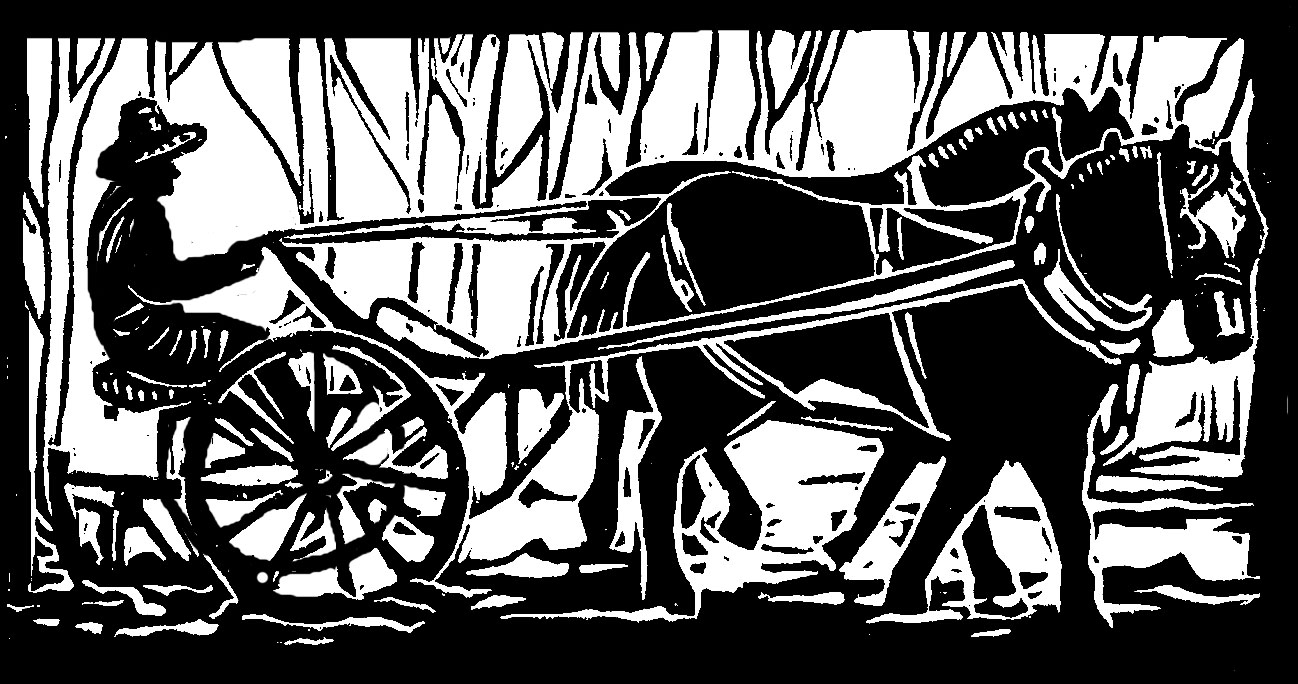Our work horses have a high old time in the late spring. They are out on green grass, which causes much equine glee, evidenced by all the kicking, running, rolling, and munching. The early spring horse work is finished, and the summer horse work hasn't quite started, so our horses spend the days at leisure in the pasture.
Actually, they spend the nights at leisure in the pasture. During the days, they are at leisure in the cool, bug-free stable. Every morning, the horses come up to the gate for deliverance from pasture heaven, which has been slightly compromised by all the biting bugs.
The horses swish their tails and stomp their feet, and gaze meaningfully in our direction, waiting to be brought into the barn. We keep an eye out for the meaningful gaze and an ear out for the stomping hooves, because if we miss the gaze and the stomp, there will be be horses galloping and gasping and sweating and swearing at the flies. If we still miss their meaning, there will be horses busting through the gate and making their own non-leisurely way to the cool, bug-free stable.
This occasional gate-crashing is more of an emergency escape, caused by the lack of complete farmer attention on horse comfort, and is thus excusable. However, our bug-bitten steeds have another habit that we farmers find a little more daunting.
This is the Itching-All-Bug-Bites-on-Whatever's-Handy habit. This is also understandable, given the extreme itchiness of bug bites, for humans and horses alike, but it does cause some consternation for the farmers. We are not keen on being the Whatever's Handy, and we discourage horses from scratching their large selves on our small selves (though it's certainly nice to groom an itchy horse, because she or he is in such bliss).
Normally the horses wander at will in and out of their stalls, itching themselves on mangers or water troughs instead of people, or ambling around to check the bug situation. Still buggy? Back in their stalls they hurry. Usually this system works well, but recently we discovered that an ambling itchy horse had decided to test out the post that holds up the lean-to roof. Not as a hitching post, mind you, but as an itching post.
And, heck, when a big horse behind starts itching itself on a post, what happens?
The post comes loose, that's what happens. Then a busy springtime farmer doesn't have time to fix the post right away, so he or she decides to halter the horses and tie them in the stalls for the day, so the post situation doesn't get any worse.
However, the farmer forgets that one of the snaps on the ties periodically despairs of its duty, thus releasing an itchy horse to amble. The itchy horse finds the wobbly post, and itches some more. The post gets looser and looser. Another horse, dismayed by the lack of his escaped buddy's company, breaks his snap entirely and goes out, also to amble and itch.
Thus the post comes down completely, as a dismayed farmer discovers later in the day. The horses are returned to their stalls, the snaps are jerry-rigged, and the farmer also ties a piece of baling twine behind the horses, as a suggestion that they not back up and escape, a suggestion that they kindly honor.
Then for a fun change of pace from planting, plowing, weeding, and watering, the farmers replace the concrete footing, and prop up the sagging roof with a tire jack and a four by four. We position the heavy post, which won't fit exactly in the right place, so we stick it another likely spot, true to our usual busy farmer carpentry efforts.
My fellow farmer balances on a wobbly ladder with a drill, and I stand under the wobbly ladder, holding the heavy post and whimpering, wondering when the jack is going to kick out again and knock over the four by four, the wobbly ladder, my fellow farmer, the drill, the heavy post, and me.
Happily indeed, the jack does not kick out again, and my fellow screws in the post and we step back and admire our work.
It is a short period of admiration, an admiration bordering on disbelief, since the post is very very very crooked. But by then it is after seven o'clock and we haven't had any supper and we are hungry and the horses are hungry and we give up for the day. We take our horses out to pasture, where they are very gleeful, kicking, running, rolling, and munching. Which is right where we started in this itchy busy sustainable farming story, and a fine place to end.
Originally published in the Monadnock Shopper News, June 21 - 28, 2017
